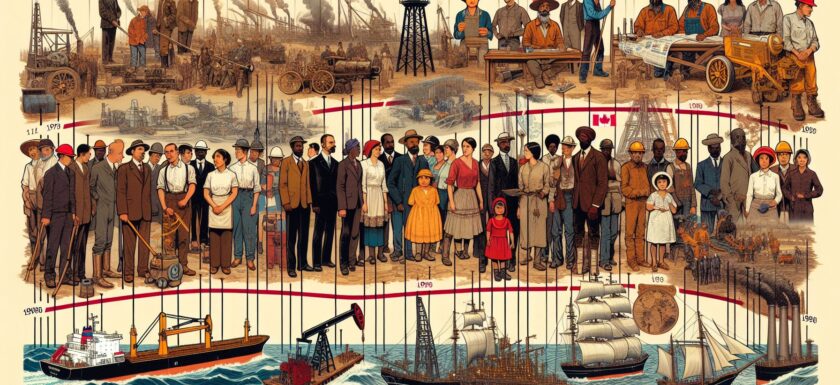Canada’s Oil & Gas industry is often overshadowed by its famous American counterpart. However, what many people fail to realize is the incredible significance and complexity of this sector within the Canadian economy. From its deep cultural roots to its economic impact, the oil & gas industry in Canada holds a fascinating tale that deserves to be told.
A Historical Perspective
To truly understand the present, we must first explore the past. Canada’s involvement in the oil & gas industry traces back to the mid-19th century. It all began with James Miller Williams, a Canadian entrepreneur, who drilled the first commercial oil well near Sarnia, Ontario, in 1858. This marked the birth of Canada’s oil industry.
Over the next few decades, discoveries of oil fields in Alberta and Saskatchewan further propelled the growth of the industry. The oil & gas sector quickly became one of Canada’s leading industries, attracting investors from all over the world. It played a significant role in shaping the nation’s economy and paved the way for future developments.
Economic Impact
The oil & gas industry remains a crucial component of Canada’s economy. It contributes billions of dollars annually and provides employment to thousands of Canadians. The revenue generated from oil exports has allowed the country to invest in other sectors and improve the overall standard of living.
Canada possesses the third-largest oil reserves globally, trailing only Venezuela and Saudi Arabia. This abundance of natural resources has been a driving force behind the country’s economic success. Furthermore, valuable by-products like natural gas are extensively used for electricity generation, heating, and industrial purposes.
Environmental Concerns
While the oil & gas industry has undoubtedly played a vital role in Canada’s economic growth, it has not been without controversy. Environmental concerns surrounding oil extraction and transportation have sparked heated debates among policymakers, environmental activists, and indigenous communities.
One of the main concerns is the impact on the environment caused by the extraction of oil from oil sands. The extraction process is known to produce a substantial amount of greenhouse gas emissions and can lead to the release of harmful pollutants into the air and water systems.
Nevertheless, the Canadian government has recognized the need to address these concerns and has implemented stringent regulations to mitigate the industry’s environmental footprint. Investment in research and development of cleaner technologies also remains a priority.
Future Prospects and Challenges
As Canada looks towards the future, the oil & gas industry faces both opportunities and challenges. The demand for energy continues to rise globally, opening doors for increased exports. However, there is an increasing need for sustainability and a transition to cleaner energy sources.
Canada has made significant strides in investing in renewable energy solutions, such as wind and solar power. The country aims to strike a balance between harnessing its natural resources and protecting the environment. This transition is crucial to remain competitive in a rapidly changing global energy landscape.
Conclusion
The oil & gas industry in Canada is a tale of rich history, remarkable economic impact, and environmental concerns. It has shaped the nation’s economy, provided jobs, and contributed to its global standing. However, it is also facing significant challenges and must adapt to changing times.
As technology evolves and environmental concerns increase, Canada’s oil & gas industry must continue to innovate and find sustainable solutions. A delicate balance between economic growth and environmental responsibility is necessary to secure the industry’s future. Only through this harmonious coexistence can Canada’s oil & gas industry navigate the complexities of the 21st century and continue to thrive.

